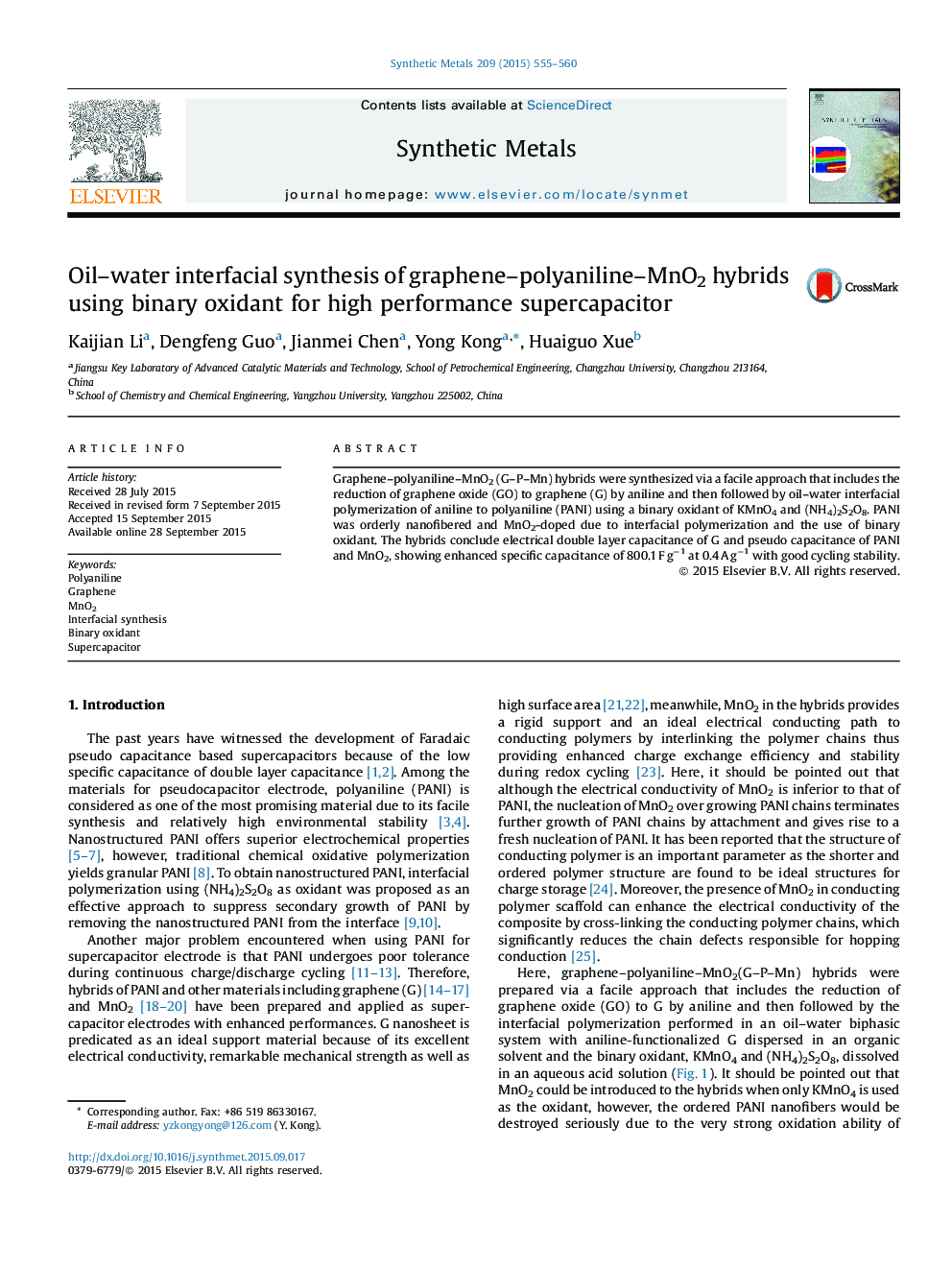| Article ID | Journal | Published Year | Pages | File Type |
|---|---|---|---|---|
| 1440543 | Synthetic Metals | 2015 | 6 Pages |
•G–P–Mn hybrids are prepared via a facile oil–water interfacial polymerization method.•A binary oxidant composed of KMnO4 and (NH4)2S2O8 was used for aniline oxidation.•PANI was nanofibered and MnO2-doped due to interfacial synthesis and binary oxidant.•The G–P–Mn hybrids exhibit enhanced specific capacitance and good cycling stability.•It opens a new avenue in designing hybrids in supercapacitor using multiple oxidants.
Graphene–polyaniline–MnO2 (G–P–Mn) hybrids were synthesized via a facile approach that includes the reduction of graphene oxide (GO) to graphene (G) by aniline and then followed by oil–water interfacial polymerization of aniline to polyaniline (PANI) using a binary oxidant of KMnO4 and (NH4)2S2O8. PANI was orderly nanofibered and MnO2-doped due to interfacial polymerization and the use of binary oxidant. The hybrids conclude electrical double layer capacitance of G and pseudo capacitance of PANI and MnO2, showing enhanced specific capacitance of 800.1 F g−1 at 0.4 A g−1 with good cycling stability.
Graphical abstractFigure optionsDownload full-size imageDownload as PowerPoint slide
